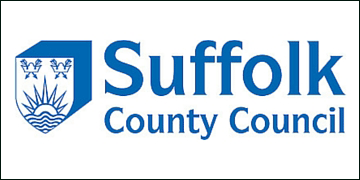Suffolk County Council values and nurtures its children’s social workers – that’s why staff in our service have good morale, low turnover and feel motivated.
Ofsted shares this view. In September 2017, Ofsted tested its new inspection format in Suffolk and found the service was good in all areas.
The inspectors also said Suffolk social workers are supported and work together to improve outcomes for children and families.
Here are five reasons why social workers love working for Suffolk:
1. Signs of Safety
Suffolk adopted the Signs of Safety model of practice early and it’s now fully embedded across children’s services.
David Jacobs, head of service for children’s social care fieldwork, says what makes Signs of Safety so valuable is that it is solutions- and strengths-focused whilst remaining risk sensible. “The emphasis with Signs of Safety is on effective relationships with and within the families, rather than just assessing and doing to families,” he says.
The model also gives all children’s professionals in Suffolk a shared language, making multi-agency understanding and working much smoother.
What Ofsted said: “The way in which the local authority has rolled out its preferred social work model across all children and young people’s service is extremely impressive.”
2. Direct work
Another benefit from Suffolk’s whole-hearted embrace of Signs of Safety is that it focuses the service on the value of direct work and engagement with children and families. “The Signs of Safety framework embeds this within its direct work tools such as the Three Houses,” says David.
Such direct work also means better outcomes. One example is a case involving a family who had previously had children removed and moved to Suffolk from another authority.
The mother was pregnant again but through direct work, the Suffolk social worker working with the family was able to dig deeper with them, regarding their needs and experiences, including discovering that the mother was also a carer for her own mother. “Recognising and supporting the mother with that had a massive positive impact on her parenting capacity,” says David.
What Ofsted said: “Inspectors saw some very good examples of direct work with children.”
3. Low turnover, high morale
Suffolk listens to and respects the views of children’s social workers and that is why the service has such an upbeat and well-motivated workforce. “The social work culture here is very positive,” says David. “We see social workers as leaders in their field and that lifts people’s heads up.”
The positivity within the service is also demonstrated by its low sickness and absence rates and staff turnover that is now at a two-year low.
What Ofsted said: “Morale is good. There is a real sense of staff working well together to improve outcomes for children and young people.”
4. Always innovating
As a council Suffolk is always looking for innovative and exciting ways to help families. From its Positive Choices project, which helps women break the cycle of having their children taken into care, to the Family Solutions Team, which works with children and families on the edge of care.
“The edge of care service is having a very positive impact and preventing family breakdown,” says David. Suffolk is already planning to build further on the team’s success with a £400,000 Social Impact Bond investment to develop a complementary additional service for families on the edge of care.
What Ofsted said: “The Family Solutions Team is able to demonstrate its positive impact in preventing family breakdown and/or supporting reunification.”
5. Nurturing your skills
“We very much have a learning culture within the service and we provide staff many formal and informal training and development opportunities, including through our teaching partnership with local universities” says David.
A key way Suffolk develops its children’s social workers is through the monthly practitioner workshops. These half-day events give social workers in each locality a chance to reflect and examine their practice, in multi-disciplinary groups, based on themes emerging from service audits, research or national learning initiatives.
“We make these workshops case-related so social workers share case work with each other and learn from their peers,” says David. “We look at what we’re doing and discuss how we can do it even better.”
What Ofsted said: “Staff are valued, nurtured, supported and challenged. Monthly half-day practitioner workshops help to keep them informed, involved and motivated.”




 Facebook
Facebook X
X LinkedIn
LinkedIn Instagram
Instagram